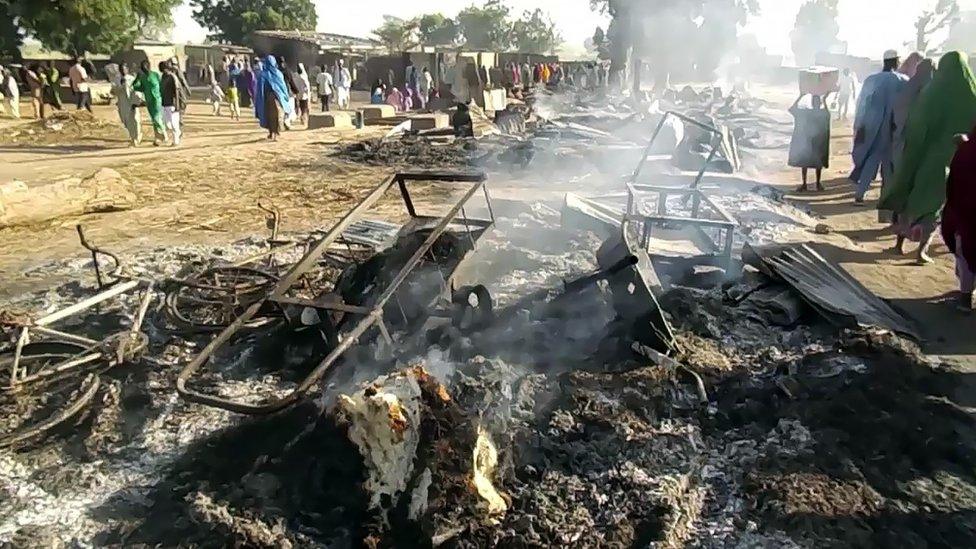Dozens of mourners 'killed by Boko Haram' at a funeral in north Nigeria
- Published

AFP journalists saw charred items and smouldering ashes after the attack
At least 65 people have lost their lives after suspected Boko Haram militants opened fire on a funeral in Nigeria's north-eastern state of Borno.
Gunmen arrived on motorcycles and in vans at the village near the state capital, Maiduguri, on Saturday, eyewitnesses say.
A number of mourners were reportedly killed straight away, while others died trying to chase off the attackers.
There has been an increase in Islamist attacks across the region.
Local government official Muhammed Bulama said he thought the latest attack was in revenge for the killing of 11 Boko Haram fighters by the villagers two weeks ago.
Agence France Presse journalists at the scene said they saw burnt-out homes, and relatives collecting the bodies of those who were killed.
Nigeria's President Muhammadu Buhari condemned the attack, and ordered the air force and army to hunt down those who carried it out, Reuters reports.
Tens of thousands of civilians have been killed and more than two million displaced over the past decade of conflict.
Boko Haram, loosely translated, means "Western education is banned" and promotes a version of Islam that forbids Muslims to take part in any political or social activity associated with the West. The group is fighting to overthrow the government and create an Islamic state.
It has been active not only in Nigeria, but also in the neighbouring countries of Chad, Niger and Cameroon.
Boko Haram has been notorious for kidnapping schoolchildren and attracted global media attention in 2014 following the abduction of almost 300 girls from a school in the town of Chibok, in Borno, the state where the militant group has been most active.
In 2015, it was ranked the by the Institute for Economics and Peace.
Territory controlled by the group has declined in recent years and it has splintered into competing factions.
However, the Islamist militants remain active in the region, defying attempts by the army to bring the insurgency to an end.
- Published8 February 2019
- Published28 July 2023
- Published17 October 2018